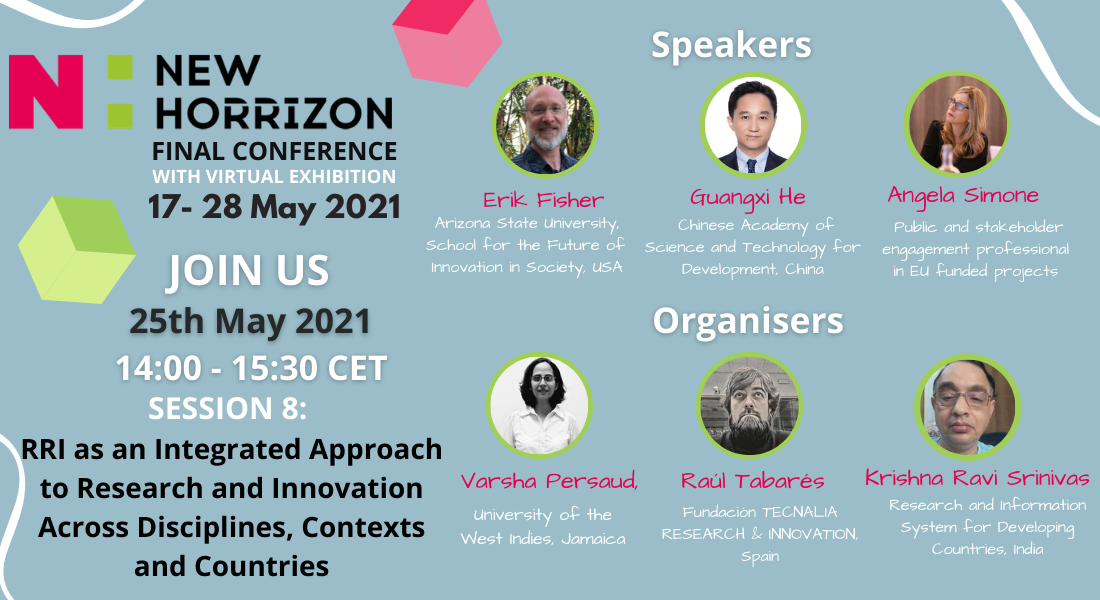Organisers: Varsha Persaud, Raúl Tabarés, Krishna Ravi Srinivas,
Speakers: Erik Fisher, Guangxi He, Angela Simone
The grand challenges that society is currently facing, such as climate change or the COVID-19 outbreak, has stressed the need of collaboration between disciplines. This collaboration is not only demanded for addressing the complexity of the “wicked problems” that we face, but also for promoting a better understanding of the inequalities, uncertainties and instabilities that surround the basis of our societies.
New integrated approaches such as STEM (Science, Technology, Engineering and Mathematics) have been promoted in the last decades for meeting this gap. Recently, other SSH (Social Sciences and Humanities) combined approaches such as SHAPE (Sociology, History, Arts, Philosophy and Economics) have also been promoted for defending the value of SSH into public society.
However, the real value of an interdisciplinarity approach does not only lie in congregating technical and/or social disciplines. As it was argued by Charles Percy Snow in 1959 at his famous lecture, “The Two Cultures”, the lack of communication between the sciences and the humanities is a major gap for solving the grand challenges of modern society.
In this sense, RRI (Responsible Research and Innovation) can provide a bridge for meeting this gap and enabling the conditions towards “a third culture”. During this session, we were exploring this with the help of our speakers and participants for understanding how RRI can work as an integrated approach to promote a better science, technology and innovation across different disciplines that can meet the grand challenges of society.
Keywords: grand challenges, interdisciplinarity, SSH, socio-technical integration,

